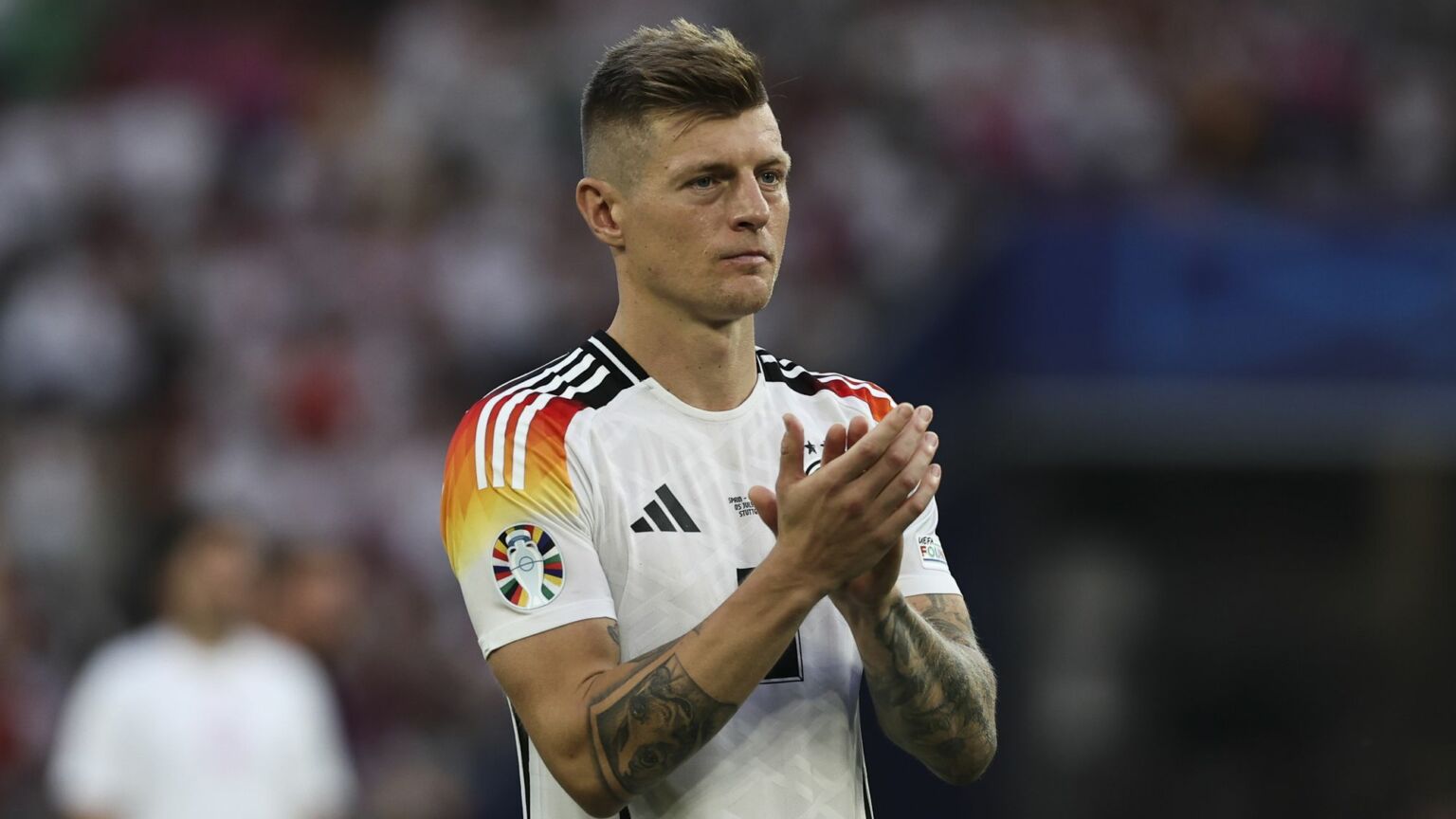Football
Has Germany finally kicked woke out of football?

Last week, newly retired German football star Toni Kroos broached the thorny topic of mass migration. Germany, he said in a podcast interview, was still ‘a great country’, but not the same as it was when he left for Spain 10 years ago. Public safety has deteriorated, he explained, and he doesn’t know how safe it would be for his daughter to go out at night.
‘Control over certain issues has simply slipped away’, he told the Lanz & Precht podcast. ‘Clearly when many people come, there is always a percentage who do not do us good, just as there is among Germans.’
Surprisingly, there were none of the usual expressions of outrage and pearl-clutching in the German media after the interview. Most broadcasters chose to either ignore Kroos’s statements or to report on them without further comment.
By contrast, France captain Kylian Mbappé’s criticism of Marine Le Pen last week gained far more media attention. His appeal to French voters to not support the right-populist National Rally in the elections made headlines in Germany and occupied newspapers for several days. The difference is, of course, that while Mbappé attacked populism, Kroos sided with the populist critique.
Still, this fear or unwillingness to react to Kroos is an indication of how much the political climate has changed in Germany. Not too long ago, criticising former chancellor Angela Merkel’s liberal immigration policy was a taboo associated with the far right. Yet now, almost every political party has been forced to respond to public concern over mass migration. Those which haven’t, like the Greens or the Left Party, lost badly in the EU elections last month.
Tellingly, the German Football Association (DFB) has also said nothing in response to Kroos’s comments. This is despite the association’s traditionally very close involvement with various political causes. For years the DFB has been engaged in anti-racism campaigns. And when transgender ideology and LGBT activism became fashionable, the DFB went along with that, too. In 2021, for example, the city of Munich illuminated its stadium with rainbow colours for a game against Hungary during the European Championship.
Now, though, the DFB seems to have lost interest in siding too openly with government policies. It has, thankfully, learned its lessons from the 2022 World Cup in Qatar – a true low point in Germany’s football history. Many fans felt deeply embarrassed when the German team engaged in a collective ‘silent protest’ against FIFA’s ban on LGBT ‘OneLove’ armbands. Players posed with their hands over their mouths for a photo at the start of the first game. To make matters worse, German interior minister Nancy Faeser, who is consistently ranked as one of the country’s most unpopular politicians, was filmed in the stands wearing one of the armbands.
More football, less politics was the DFB’s promise after the Qatar debacle and ahead of this summer’s Euros, which are hosted in Germany. A new lead coach, Julian Nagelsmann, was hired. His job, the DFB announced, was to ‘pull German football out of its slump and give the country a few upbeat weeks’. This was all the more necessary, as surveys indicated that only 53 per cent of Germans were looking forward to the Euros. Luckily, the mood changed once the games started and fans began celebrating on the streets in Düsseldorf, Dortmund and Berlin.
While the talk was generally about ‘less politics’, everyone knew what this really meant was less ‘woke’. As if to prove this point, the much-loved Rudi Völler – a former football star, coach and member of the DFB leadership – announced that the team would return to the black-red-gold kit colour and lose the virtue-signalling ‘OneLove’ armbands. He also complained about Last Generation, Germany’s equivalent of Just Stop Oil, and criticised the way the German language is being warped to fit around gender ideology.
Those who want to impose their woke agenda on German football may be on the defensive, but they haven’t disappeared. There are still complaints in the media about how ‘queer fans’ have apparently been excluded from the Euros, because football is a male-dominated sport. There have also been all the usual attacks on mainly working-class football fans. In June, public broadcaster ARD carried out a survey asking fans whether they would like to see more white players on the German team. Twenty-one per cent answered yes, while 65 per cent did not agree at all. From this, ARD deduced that one-fifth of German fans are racists.
This was grist to the mill of identity-obsessed politicians like Katrin Göring-Eckardt, a leading Green Party MP. ‘This team is truly exceptional’, she wrote on X following the game against Hungary last month. ‘Just imagine if there were only white German players.’ Her comment was met with a wave of criticism – including by Nagelsmann, who called the survey ‘racist’. Göring-Eckardt deleted the post and apologised.
It’s probably wishful thinking to believe that professional football can ever be free from politics. But Kroos’s comments – and the reaction to them – are incredibly telling. His opinions are largely shared by most Germans, as uncontrolled migration and poor integration have become major concerns for voters.
Kroos has demonstrated that criticising immigration is no longer taboo – and that an unease with identity politics is not ‘far right’, but a feeling held by most ordinary Germans. Let’s hope that woke can be kicked out of football for good.
Sabine Beppler-Spahl is spiked’s Germany correspondent.


)






